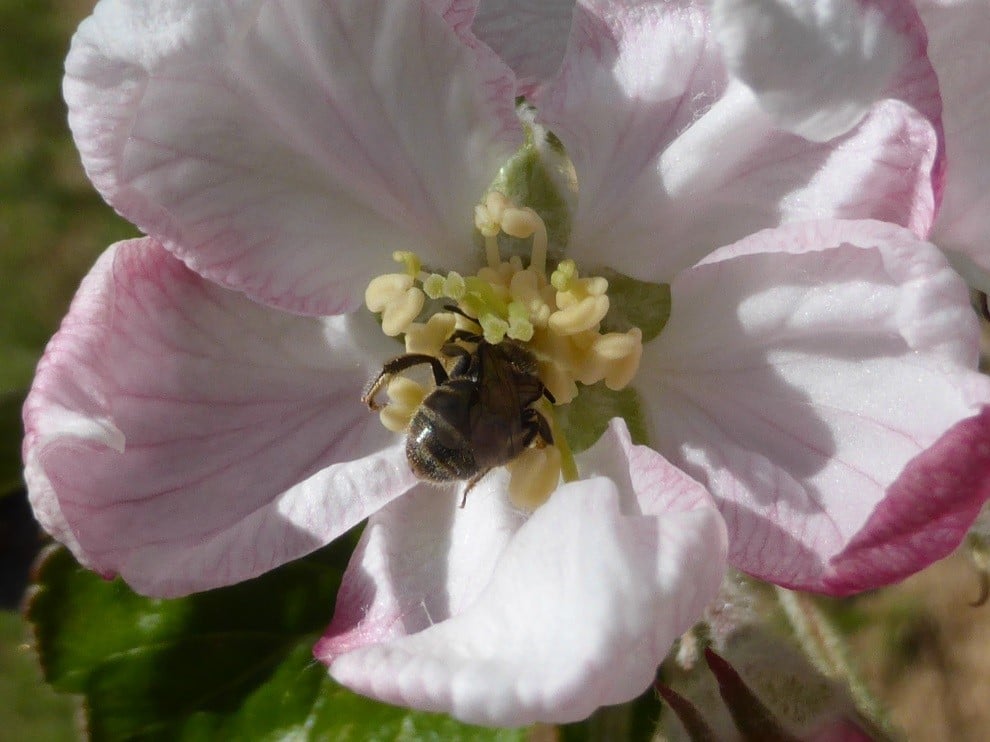Waite researchers will share in $4.7 million funding awarded under Round 4 of the Rural R&D for Profit program by the Department of Agriculture to investigate novel technology and practices for optimising pollination in protected cropping environments.
Led by Hort Innovation, project partners include the University of Adelaide, Plant and Food Research Australia, University of Tasmania, University of New England, Seed Purity and NSW DPI.
The Waite component of the project is led by Dr Katja Hogendoorn (pictured) from the University of Adelaide School of Agriculture, Food and Wine. Cash and in-kind investment for the University of Adelaide part of the project totals over $1.1 million.
“We will collaborate with Plant and Food Research Australia and the University of New England to look at the effect of netting on hive health, set and quality of apples,” Katja said.
“Using molecular markers, we will assess how far the bees carry pollen under different nets. In addition, we will study how management of the orchard floor influences the presence of native bees and hive health.”
Hort Innovation Research and Development Manager for Pollination, Ashley Zamek, said “this project aims to increase productivity and profitability of pollination dependent crops grown under protected cropping systems. We will use our scientific expertise and strong connections with industry partners to develop new mechanical pollination methods, improve plant reproduction and increase the effectiveness of insect vectors and pollination under covers.”
“The methods developed will benefit all pollination dependent cropping systems in the fruit and vegetable seed industries, including: berries, apples, cherries, lychees, carrot and cauliflower, with a combined worth of over $2.4 billion per annum in Australia. This project expects these tools to enhance productivity and return on investment by approximately 2 per cent annually.”


Native furrow bee pollinating apple.
Photo: M. Saunders
